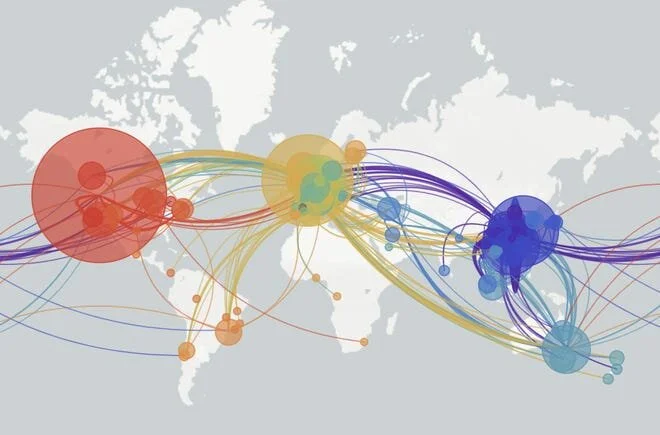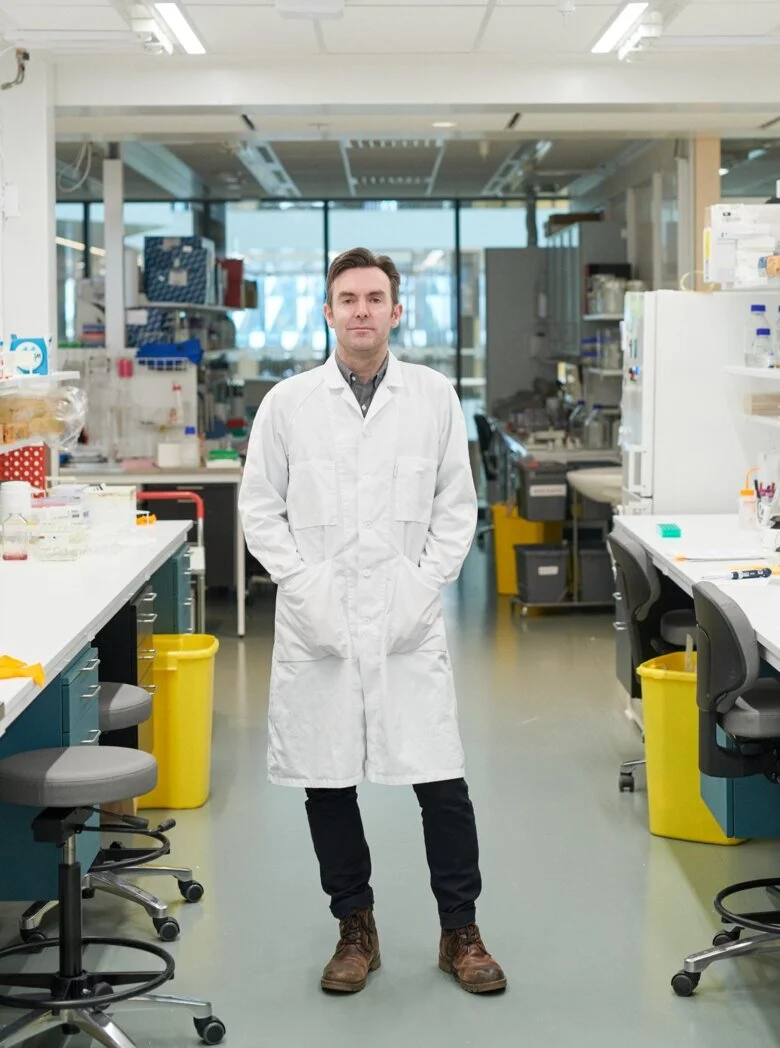8 strains of the coronavirus are circling the globe. Here's what clues they're giving scientists.
At least eight strains of the coronavirusare making their way around the globe, creating a trail of death and disease that scientists are tracking by their genetic footprints.
While much is unknown, hidden in the virus's unique microscopic fragments are clues to the origins of its original strain, how it behaves as it mutates and which strains are turning into conflagrations while others are dying out thanks to quarantine measures.
Network-Based Drug Discovery for the Emerging COVID-19 Epidemic
Human coronaviruses (HCoV), including Coronavirus Disease 2019 (COVID-19), can lead to epidemics with high morbidity and mortality. These epidemics emerge and mutate at such a rapid rate that traditional methods of drug discovery cannot keep up.
Global race to a COVID-19 vaccine
In Dan Barouch’s lab, many researchers have not taken a day off since early January, and virtually all are working nearly seven days week to develop a vaccine that could help end the coronavirus pandemic.
“Everybody wants to contribute to this global crisis as best they can,” said Barouch, director of the Center for Virology and Vaccine Research at the Beth Israel Deaconess Medical Center and professor of medicine at Harvard Medical School.
Mass. Hospitals To Launch Trial Of Japanese Drug Aimed At Fighting COVID-19
Three Massachusetts hospitals will soon launch the first U.S. clinical trials of a Japanese antiviral drug, to see if it works in treating COVID-19.
The drug, Avigan (favipiravir), has been approved in China for treating influenza, but has not been approved in the United States for that purpose, or for fighting any other disease.
Sanofi’s rheumatoid arthritis drug will be tested on coronavirus patients at four Mass. hospitals
An unspecified number of patients admitted to four Massachusetts hospitals with severe COVID-19 are receiving an approved rheumatoid arthritis drug to determine whether it can be used to treat one of the most dangerous complications of the disease, acute respiratory distress syndrome.
The drug, Kevzara, is being studied for its potential ability to suppress the overactive inflammatory immune response in patients’ lungs that can lead to death. Preliminary results of the mid-stage clinical trial are expected by the end of April, said Bill Sibold, head of Cambridge-based Sanofi Genzyme. Its French parent company, Sanofi, developed the drug with Regeneron Pharmaceuticals of New York.
Scientists produce a reference map of human protein interactions, releasing data helpful for understanding diseases including cancer and infectious diseases such as COVID-19
The human body is composed of billions of cells, each of which is made and maintained through countless interactions among its molecular parts. But which interactions sustain health and which ones can cause disease when they go awry? The human genome project has provided us with a “parts list” for the cell, but only if we can understand how these parts go together, or interact, can we really begin to understand how the cell works and what goes wrong in disease.
Trial drug may block early stages of COVID-19, study in human cells shows
A drug already tested against lung disease could potentially inhibit COVID-19 by reducing the coronavirus load that enters the lungs and other organs. That is according to a study in human cell cultures and organoids by researchers at Karolinska Institutet in Sweden and the University of British Columbia (UBC) in Canada, published in the journal Cell.
COVID-19 Vaccine Candidate Shows Promise in First Peer-Reviewed Research
University of Pittsburgh School of Medicine scientists announced a potential vaccine against SARS-CoV-2, the new coronavirus causing the COVID-19 pandemic. When tested in mice, the vaccine, delivered through a fingertip-sized patch, produces antibodies specific to SARS-CoV-2 at quantities thought to be sufficient for neutralizing the virus.
Pandemic likely to go in waves, researchers say
Researchers at Karolinska Institutet in Sweden and the University of Basel in Switzerland have produced a mathematical model that shows that the spread of the new coronavirus can decline in the summer and then return in the autumn and winter. The analysis has been published in the scientific journal Swiss Medical Weekly.
"Notre maison est en feu et nous devons construire un camion de pompier"
Isabella Eckerle, professeure associée au Département de médecine (Faculté de médecine), dirige un des rares groupes de recherche encore pleinement actifs en cette période d’épidémie de COVID-19. Première interview d’une série consacrée aux recherches portant sur le coronavirus
The hunt for antibodies against the coronavirus
The coronavirus pandemic has shaken all our lives—and researchers around the world are working hard to find solutions to the crisis. Gerald McInerney, Associate Professor of Virology at Karolinska Institutet, focuses on developing antibodies that can block the virus’ ability to infect cells, so-called neutralizing antibodies.
The Role of BCG Vaccination in the Fight Against COVID-19
“Mortality due to COVID-19 is reduced in countries where the vaccination of newborns with BCG, a vaccine to prevent tuberculosis, has been compulsory since the first half of the 20th century.”, said dr. Mihály Ruppert, PhD student explained while presenting a recently published epidemiological study.
Based on the results of the study, Hungary is one of these countries with possibly favourable circumstances, where the vaccine was introduced in 1954. Clinical trials proving the epidemiological observations will be launched in the following days and weeks all around the world.
Northeastern Models Are Helping Shape Us COVID-19 Policy
Northeastern researchers are part of the network of teams creating models to advise the Trump administration on the COVID-19 outbreak in the United States, White House officials said Tuesday.
Stanford researchers explain how humanity has ‘engineered a world ripe for pandemics’
A pandemic can strike at any time. It takes little more than the right roll of genetic dice in a virus circulating among animals, followed by a chance encounter with a person or some go-between species, like pigs or mosquitoes. But as the new coronavirus whips around the world with a speed matched by few of the infectious diseases that have emerged in modern times, it poses the question: Why now?
Researchers Tackle the Flu with Breakthrough Virus Simulations
A team of researchers from the University of California San Diego and the University of Pittsburgh offers a new approach for developing treatments for influenza. This version of the flu called pandemic Influenza A H1N1 2009, or pH1N1, differs from the Coronavirus, and has been known to kill hundreds of thousands of people each year. The Center for Disease Control estimates that it affected nearly 61 million people, resulting in more than 12,000 deaths, in the United States alone. The H1N1 virus also circulates among bird and pig populations, causing seasonal epidemic and pandemic outbreaks, such as the 1918 Spanish Flu, which killed millions of people worldwide.















